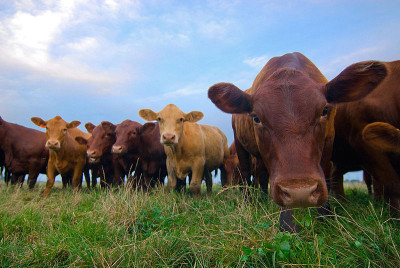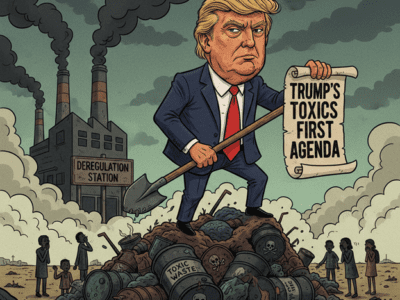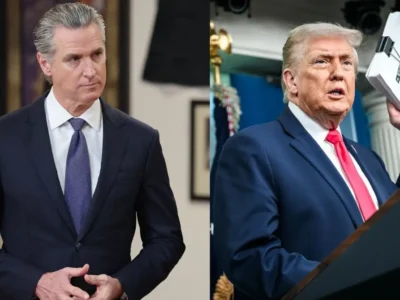California Enacts Legislation Targeting Short-Lived Climate Pollutants
The statute codifies the goals set by the Governor and ARB
On Monday, Governor Brown signed SB 1383 into law, establishing statewide targets for reducing what are known as “short-lived climate pollutants,” which I have discussed in previous posts. The law requires a 40% reduction in both methane and hydrofluorocarbon gases (HFCs) below 2013 levels, and a 50% reduction in black carbon from 2013 level. Legislators introduced the bill earlier this year after the historic agreement reached under the UNFCCC in Paris.
Other than the pollution reduction goals, the law also sets goals for waste reduction, since organic waste in landfills is a major source of methane. It requires a 50% reduction in statewide disposal of organic waste from 2014 levels by 2020, and a 75% reduction by 2025. Perhaps most surprising is the required reduction in food waste: it directs the Department of Food and Agriculture to adopt regulations designed to divert at least 20% of edible food currently disposed of to human consumptive use by 2025. The phrasing of this goal is a bit perplexing, since it doesn’t require just a reduction in food waste, which could be achieved by reducing the total amount of food prepared, but specifically targets edible food that goes into the trash. A casual conversation over lunch with a friend in food law left us both stumped as to how the Department might accomplish this.

A large portion of the bill focuses on how to reduce methane emissions from livestock and dairy operations, which account for almost half of California’s total methane emissions. It sets out a number of conditions and requirements for the ARB in formulating regulations to meet the methane reduction goals. For example, ARB must consult with stakeholders from the livestock and dairy industry, must hold public forums on the proposed regulations in geographically diverse locations, and must conduct or consider research on livestock and dairy operations. The law also conditions the implementation of any regulation on ARB finding that the regulation is technologically and economically feasible, which it defines as including determining whether markets exist for the products generated by manure management, whether there is access to the energy system for biomethane, and considering dairy prices and public funding levels.
It is interesting that the legislature seems to be conditioning the regulation on things they have a certain amount of control over. Only a few paragraphs after the above conditions, the same law directs the Energy Commission to develop recommendations for integrating biogas and biomethane into the current energy market and infrastructure. The fact that the Energy Commission is only required to provide recommendations suggests that further legislative action may be needed, in which case the legislature just conditioned any future methane regulation on their own future decisions. To muddle things further, the law also sets a midway review point of 2020, when ARB must assess the progress thus far in overcoming “technical and market barriers,” and if it “determines that progress has not been made in meeting the targets due to insufficient funding or technical or market barriers, the [ARB] … may reduce the goal” for methane reduction. This is essentially an escape hatch.
To be fair, the technical and economic challenges in creating a statewide, large-scale market for biomethane produced from cow manure are many and daunting. As one of (if not the) largest dairy producers in the country, California has a lot on the line in making business harder for dairies. So the very fact that the legislature was willing to codify a quantitative goal for reducing methane is a huge deal. But we must also recognize that underneath that lofty goal are a lot of “ifs.”
Reader Comments
One Reply to “California Enacts Legislation Targeting Short-Lived Climate Pollutants”
Comments are closed.







This bill should have been vetoed. Below is an Op-Ed that I wrote about SB 1383 (Short-Lived Climate Pollutant Regulation and Reduction Targets, California) before the signing by the governor, recommending that the bill be vetoed by the governor. Unfortunately, none of the journalistic outlets to which I submitted the Op-Ed chose to run it. I still want to share this critique with anyone who might be interested in this California law in the future. P
Governor Brown: Please Veto SB 1383!
By Todd Shuman
Governor Brown currently has a controversial bill resting on his desk. This bill – SB 1383 – was originally meant to regulate and reduce short-lived climate pollutants (SLCPs), such as methane and black carbon. However, amendments incorporated into the bill at the very end of the legislative session would block initiatives that need to be taken very soon to reduce the massive methane emissions that flow from the livestock and dairy industries in California. For that reason, I recommend that the Governor veto SB 1383.
SB 1383 prevents compulsory reduction standards from being established for the number one methane emission source in California (enteric emissions – cow burps!) while delaying for a full seven years any implementation of reduction standards for the number two methane emission source in California (manure-related emissions – cow poop!). It includes a monster loophole that will allow the California Air Resources Board (CARB) to reduce the dairy-related manure methane emission reduction standard in 2020. In the legislature’s rush to codify black carbon emissions reductions, it has thrown meaningful livestock-related methane emission abatement “under the bus” for nearly a decade.
Opposition to SB 1383 is coming from both sides of the political spectrum. Asking for a veto from the left-of-center is an environmental justice coalition, led by the Center for Race, Poverty, and the Environment. In a letter to Governor Brown, this coalition noted that SB 1383 will continue to impose “unfair and disproportionate burdens on San Joaquin Valley communities for years to come who already suffer unacceptable air and water pollution conditions caused by dairies.”
Asking for a veto from the right-of-center is a business coalition, led by the California Chamber of Commerce, the Western States Petroleum Association, the Western Growers Association, and 14 other organizations.
The business coalition issued a letter that argues that amendments to SB 1383 would likely create a disproportionate burden for non-livestock and non-dairy companies to meet statewide reduction targets for methane. It is no wonder that these business interests organized to call for a veto, as proposed reductions, delays, and loopholes concerning livestock-related emission obligations and requirements would likely increase the SLCP emissions reduction obligations that other sectors must bear in the future.
What is a reasonable alternative to SB 1383? Separate bills for methane, black carbon, and fluorinated gases, with robust mandatory emission reduction targets for each pollutant category and each human-caused emission source within pollutant categories. Reduction targets must be commensurate with the magnitude of each emission source: large reduction targets for the largest emission sources and smaller targets for the smaller emission sources. A methane tax is also needed that will apply to all methane emissions that go uncaptured and unburnt.
While these measures may appear severe to some, they are approaches that should be considered if the state is to do its share in helping to prevent a miserable, over-heated future – a future that is arriving sooner than previously expected. As Dr. Joe Romm, Founding Editor of Climate Progress, reported recently:
“NASA has reported that last month was not merely ‘the warmest August in 136 years of modern record-keeping,’ it tied with this July 2016 for the ‘warmest month ever recorded.’ And for 11 straight months (starting October 2015), the world has set a new monthly record for high temperature.”
Given such context, it makes no sense to keep exempting the largest methane-producing industries in California from being compelled to comply with near-term mandatory methane reduction targets for at least another seven years. If Governor Brown truly intends to lead the world concerning climate disruption and environmental justice, he should recognize that the legislature made a bad move in approving SB 1383. By vetoing SB 1383, he can fix this mess and force the legislature to start over again.